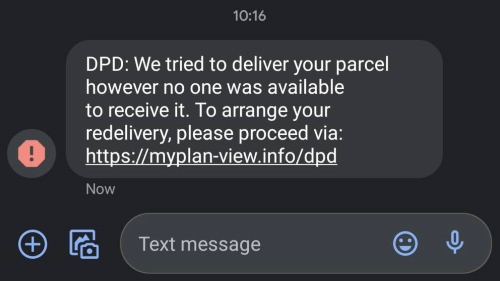Inheritance tax for UK non-residents: A guide
Read our helpful guide on inheritance tax for UK non-residents, including how IHT works, current tax rates and whether non-residents have to pay it.

When Alice saw the luxury headphones she’d been dreaming of listed online during Black Friday, at almost 40% less than the retail value, she couldn’t believe her luck. With a clock ticking in the corner of the site she inputted her card details without hesitation.
But after 15 minutes, she hadn’t received a confirmation email. A week later, her headphones still hadn’t arrived. When she returned to the shopping site, the page was gone.
Alice had been scammed...
With Black Friday right around the corner, marketing emails and sales targeting is well under way. While Black Friday is known as a good opportunity to land healthy discounts on things like tech, homeware, and fashion - scammers also use it as an opportunity to target bargain-hunting victims.
So what can you do to make sure you enjoy the shopping season, and stay safe when buying items online?
If a website you haven’t heard of before is offering significant discounts on branded items, it can be tempting to make the most of these cut prices. But like all things, when it comes to online shopping, if it’s too good to be true, it often is.
By creating a fake website and selling non-existent items, scammers can scoop up plenty of purchases during one of the busiest shopping periods of the year. This is particularly effective if there’s a high-demand item which can be difficult to source elsewhere (like children’s toys ahead of Christmas, or sold out luxury items from designer houses).
Make sure if you’re shopping online you know exactly who you’re buying your items from, and choose a reputable retailer wherever you can.
You should also look for reviews, and check for reports of scams. There are some good free resources that you can use to check if a website is safe:
Carefully check the domain name of any page offering shopping services. You can read more about what to look for here. Be wary of websites that are offering deals which seem ‘too good to be true. Unfortunately it’s likely that they are.
A phishing text is designed to make you follow a link, which will then take you to a website criminals use to download viruses to your computer, steal passwords and get other personal information from you. They then use this information to make convincing calls, for example, pretending to be your bank, targeting you with fake investment opportunities, or convincing you to donate to a non-existent charity.

Phishing texts are most believable when they match up to your recent behaviour, and aren’t unexpected. During Black Friday it’s likely more people will be expecting deliveries than normal, and that makes phishing texts more effective. If you are expecting a delivery, and you get a text from an unknown number asking you to rearrange via a link, it’s easy to assume it’s related to what you’ve recently bought online
You can avoid falling for phishing attempts by being vigilant when checking website names and clicking links, not rushing when reading your missed delivery notes, and if you do receive a scam text, report it here. If you have used your Wise card in a fraudulent website, please freeze your card here.
If you do happen to click a link, you should be particularly cautious about any follow up calls or emails sent to you from a seemingly trusted provider (like your bank, or your energy provider) in the following weeks.
It’s not just a professional looking website that can catch you out, scammers are using marketplaces like Facebook, eBay, and Depop to take advantage of people buying ‘preloved’ items.
Buying second hand is a great thing to do, especially for the environment, but not everyone buying and selling on marketplaces is legitimate. It’s important you shop within the T&Cs laid out by the marketplace, as they’re there to keep you and your money safe.

Staying safe over shopping season is crucial to make sure you can enjoy the items you want, without having to go through the stress and panic of being scammed. If you’re a Wise customer and think you’ve been scammed, you can report this and get in touch here.
*Please see terms of use and product availability for your region or visit Wise fees and pricing for the most up to date pricing and fee information.
This publication is provided for general information purposes and does not constitute legal, tax or other professional advice from Wise Payments Limited or its subsidiaries and its affiliates, and it is not intended as a substitute for obtaining advice from a financial advisor or any other professional.
We make no representations, warranties or guarantees, whether expressed or implied, that the content in the publication is accurate, complete or up to date.

Read our helpful guide on inheritance tax for UK non-residents, including how IHT works, current tax rates and whether non-residents have to pay it.

How much money can you receive as a gift from overseas in the UK? Read our guide and find out the latest rules.

Find out everything about retiring in the UK, including visa options, money requirements and healthcare.

Learn how to pay bills in Italy, using different methods like post offices, banks and online platforms.

Learn how to pay a bill in euros from the UK with Wise at a mid-market rate and save on unnecessary fees and foreign exchange conversions.

Wondering how to pay a bill in France from the UK? Discover secure methods like bank transfers and online tools to manage payments with ease.